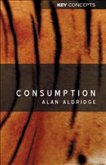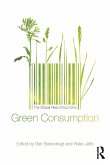This book provides a clear and concise introduction to the concept of consumption and to the wide-ranging debates about the nature and consequences of consumer society.
Community and social class appear to be in irreversible decline. Job insecurity has grown, and fewer people see work as giving meaning to their lives. Instead they turn to consumption for social standing, a sense of identity, and personal fulfilment. We appear to be living through a profound transition from a society based on production to a new social order, the consumer society, from which there is little chance of escape.
The book analyses the relationship between the rise of consumerism and the transformation of the world of work, including the new demands for 'emotional labour'. It concludes by examining the limitations of consumer organizations and consumer protection in a promotional culture dominated by global brands and saturated with advertising, corporate sponsorship and product placement.
This lively book will be essential reading for students and researchers in sociology and cultural studies.
Hinweis: Dieser Artikel kann nur an eine deutsche Lieferadresse ausgeliefert werden.
Community and social class appear to be in irreversible decline. Job insecurity has grown, and fewer people see work as giving meaning to their lives. Instead they turn to consumption for social standing, a sense of identity, and personal fulfilment. We appear to be living through a profound transition from a society based on production to a new social order, the consumer society, from which there is little chance of escape.
The book analyses the relationship between the rise of consumerism and the transformation of the world of work, including the new demands for 'emotional labour'. It concludes by examining the limitations of consumer organizations and consumer protection in a promotional culture dominated by global brands and saturated with advertising, corporate sponsorship and product placement.
This lively book will be essential reading for students and researchers in sociology and cultural studies.
Hinweis: Dieser Artikel kann nur an eine deutsche Lieferadresse ausgeliefert werden.









